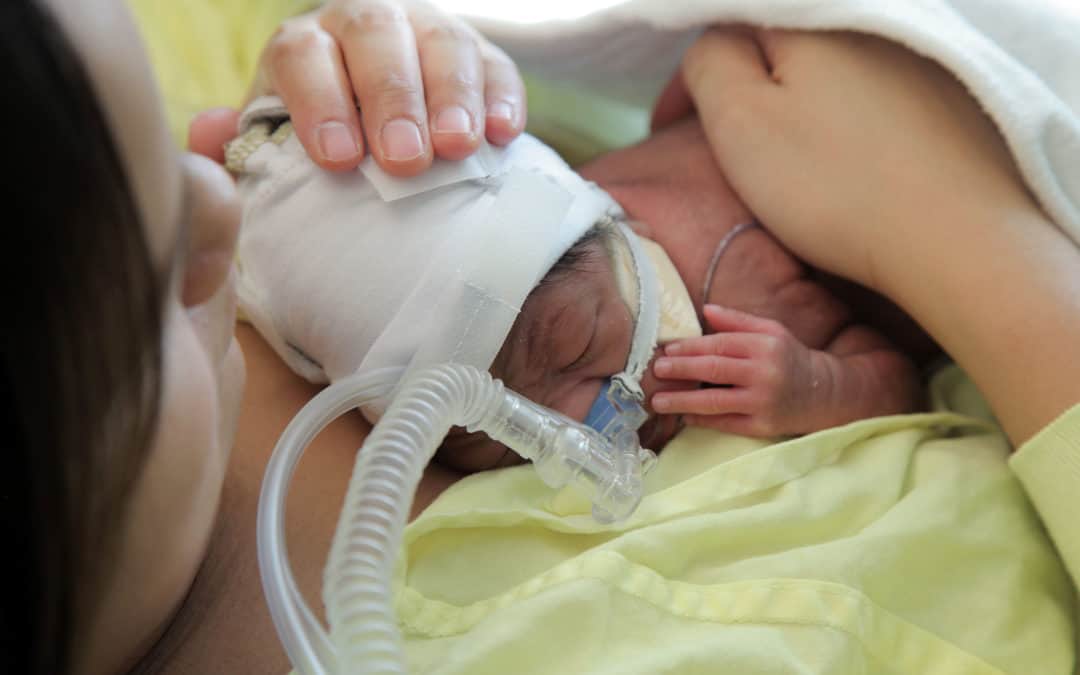By Diane Schultz
A Mother’s arms are full of tenderness and children sleep soundly in them – Victor Hugo
The NICU is a loud and chaotic place, that can be painful to be in at times. Its hard to get a good nights sleep (especially for the nurses!). When you think about how much our infants are handled and disturbed, poked and prodded, all in almost continual daylight, it’s a wonder they get any sleep.
For normal neurodevelopment the infant needs both active and quiet sleep. Sleep in an infant is divided into REM (active sleep) and NON-REM (quiet sleep). During quiet sleep you see very little movement and a regular breathing pattern, whereas active sleep involves movement with an irregular breathing pattern.
The importance of Quiet Sleep:
• Without it, the infant doesn’t get enough active sleep.
• Provides the infant with a break from the busy NICU environment.
• Lessons the release of glucocorticoids (Increased cortisol can cause neuronal cell death).
• Restorative.
• Necessary for brain development.
• Increased quiet sleep = decreased risk of SIDS.
The importance of Active Sleep:
• Active sleep promotes brain maturation (US DHHS, 2003; Mirmiran, 1995).
• Most memory consolidation and learning occurs in this state (Smith, 2003).
• Nerve cell connections are restructured (synaptic plasticity) (Marks et al., 1995).
Due to the NICU environment, the infant ends up having slower sleep organization maturation and with increased cortisol they are more apt to have a disturbed and less restful sleep.
A complete cycle of sleep includes moving from active sleep to quiet sleep and back to active sleep. Full term and preterms >32 weeks postconceptional age will need about 60-70 minutes for a cycle. Infants <32 weeks postconceptional age will need about 90 minutes. So when infants come out for KC, we try to plan for at least that amount of time.
You will see when infants are placed in KC, the infant settles and goes into a deep sleep. To accommodate this, you will need comfortable chairs for the parent and good support for their arms. You also want to make sure they have had something to eat or drink, pumped breast milk, used the washroom and had something for pain if needed. Don’t be surprised if your parent falls asleep as well; oxytocin will end up kicking in (the cuddle hormone) and they often find it hard to stay awake. We also provide warmed blankets for our parents to encourage everyone to get comfortable and rest. Snoring is a common side effect of KC in our unit…
While in KC, the infants have a deep sleep with less arousal and better sleep organization than when not in KC (Ludington-Hoe et al., 2006)
In Scher et al.’s study (2009) they found that infants’ brain maturation was accelerated and brain complexity increased with 1.5 hours of KC/day for 4 days/wk from 32-40wks pma. Enhanced development in five sensory areas of the brain was shown with KC that was not seen in infants who did not get KC (both preterm and full term).
With all the evidence pointing to KC being beneficial for a good night’s sleep, I find it difficult to understand why so many are skeptical of it!
Sleep is that golden chain that ties health and our bodies together – Thomas Dekker

